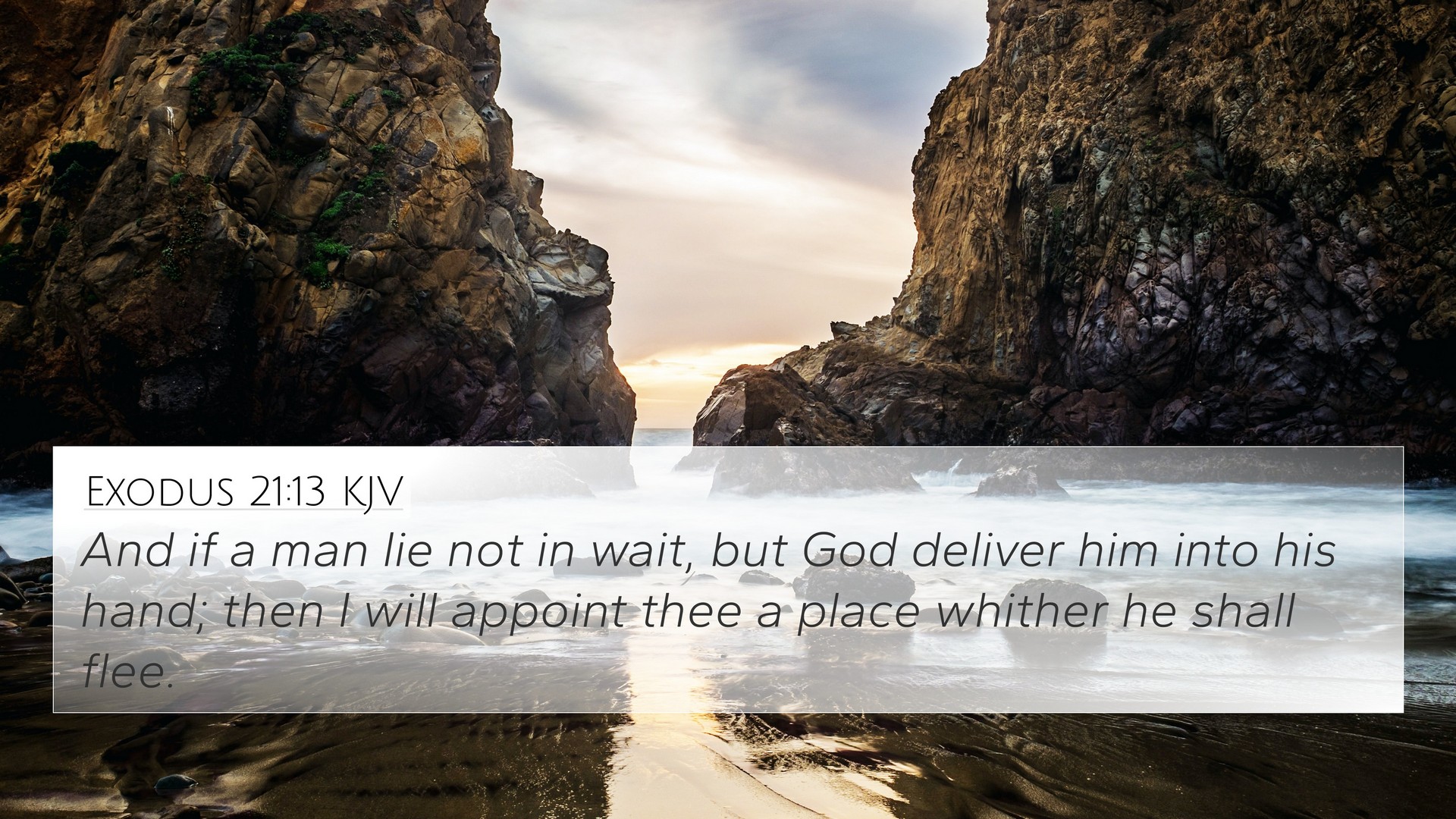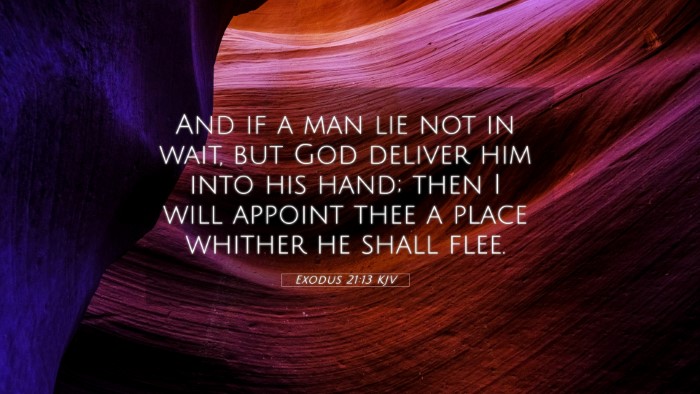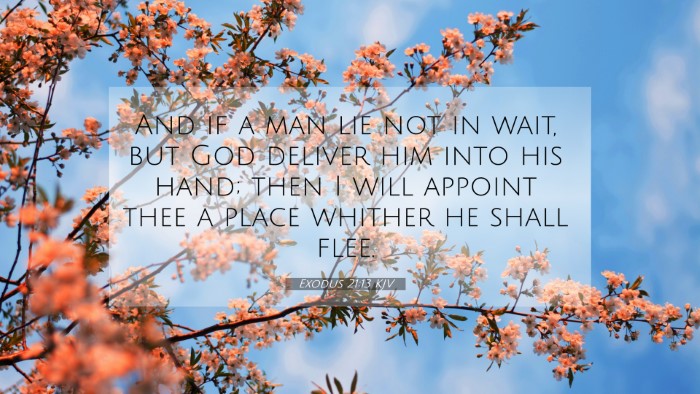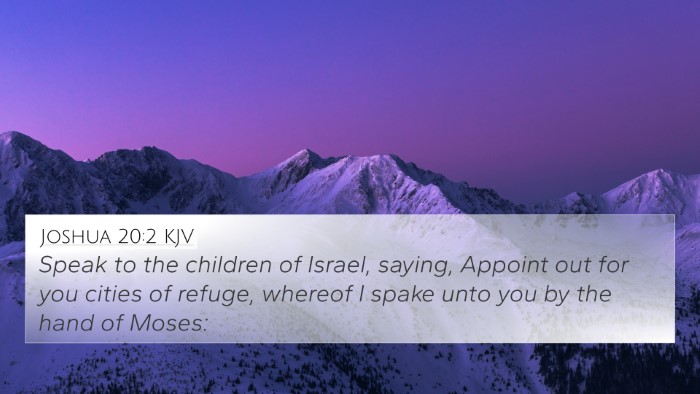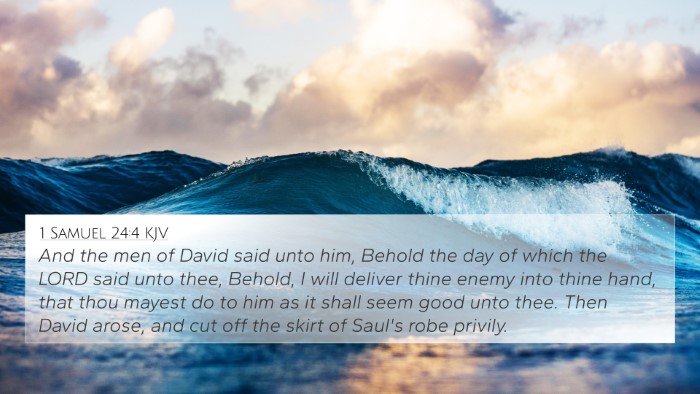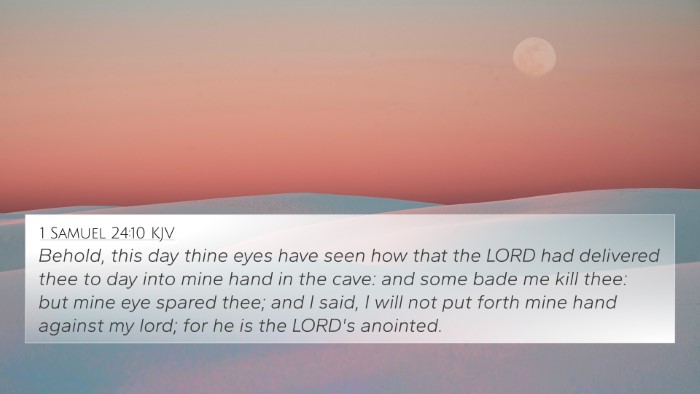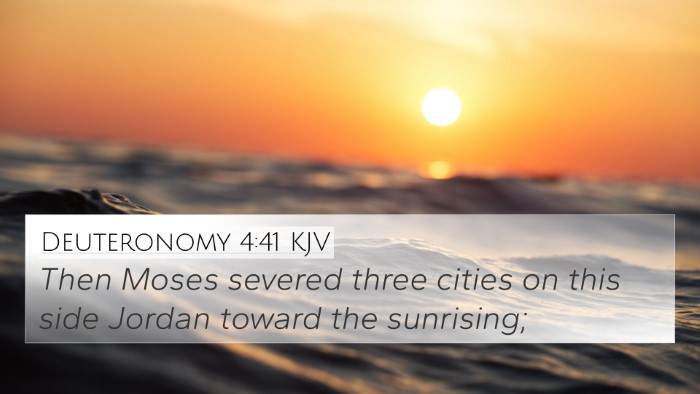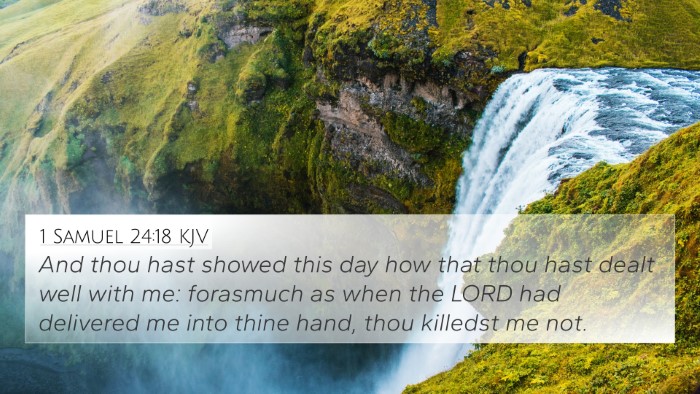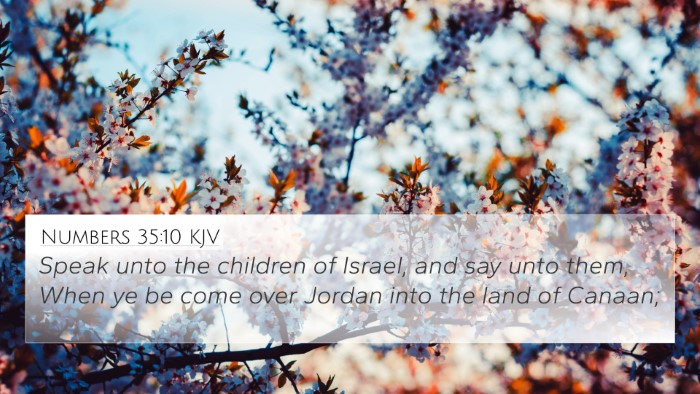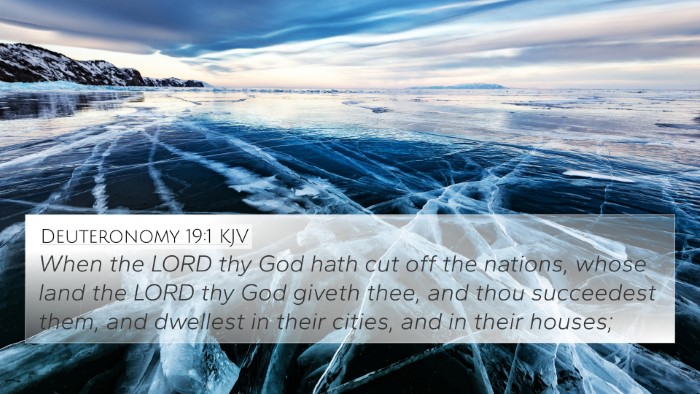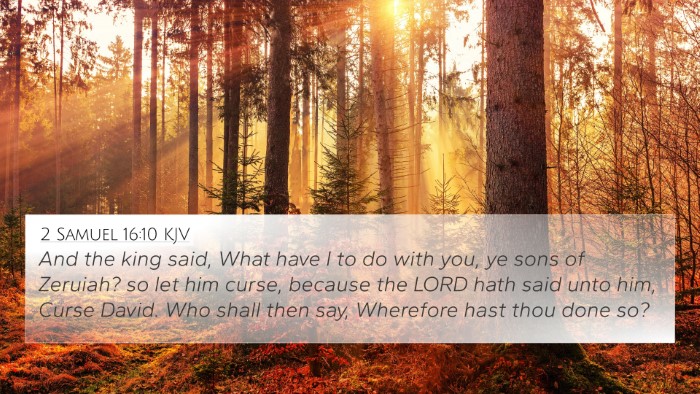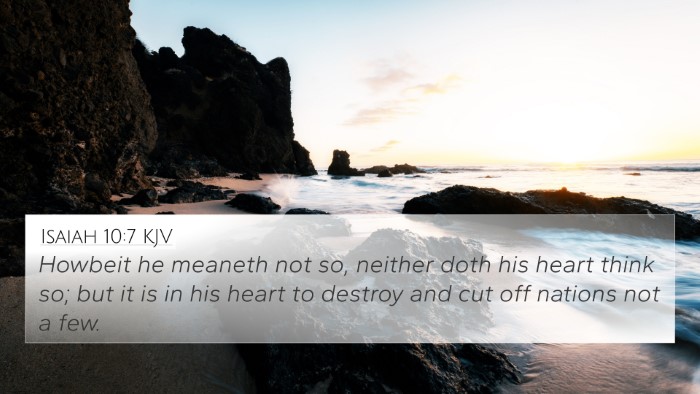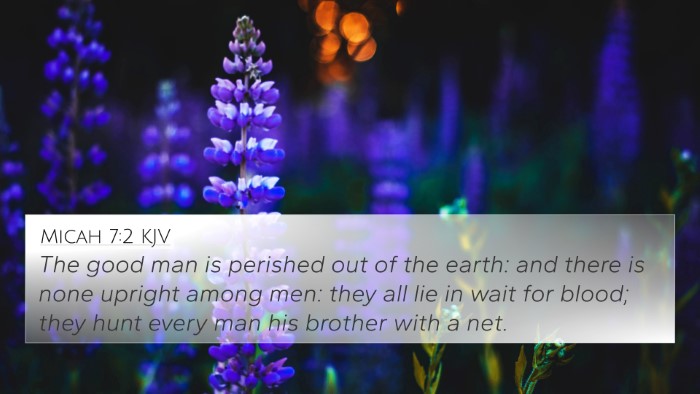Understanding Exodus 21:13
Exodus 21:13 states: "But if a man come presumptuously upon his neighbor, to slay him with guile; thou shalt take him from mine altar, that he may die." This verse delves into the legal and moral implications surrounding intentional harm and demonstrates the seriousness of premeditated actions.
In this passage, we see the underlying themes of justice and the sanctity of life, as it emphasizes the punishment for those who deliberately cause harm to another. By requiring the offender to be taken from the altar—despite the refuge it typically affords—God illustrates the absolute nature of justice. The intention behind the act of killing is critically examined; it’s not merely the act itself but the heart behind the action that matters.
Summary of Commentary Insights
- Matthew Henry: Henry emphasizes the idea of justice, indicating that even the sacred altar cannot shield a guilty person from the consequences of their actions. He discusses the importance of motives and intentions in judging actions.
- Albert Barnes: Barnes elaborates on the necessity of upholding societal order, asserting that laws must apply universally, even if the transgressor seeks refuge. His commentary points out the divine justice that transcends human sympathy.
- Adam Clarke: Clarke interprets the verse in light of God’s holiness, stating that God will not tolerate sin, even in places presumed safe. He touches on how this reflects the seriousness with which divine law treats murder and premeditated harm.
Bible Cross-References
Exodus 21:13 connects with various scriptures throughout the Bible, illustrating the continuity of divine justice and the moral order established by God. Here are some critical cross-references:
- Genesis 9:6: "Whoso sheddeth man's blood, by man shall his blood be shed..." This verse considers the gravity of murder.
- Numbers 35:31: "Moreover, ye shall take no satisfaction for the life of a murderer, which is guilty of death..." reinforces the principle of justice.
- Deuteronomy 19:11-12: Discusses the concept of a presumptuous murderer and the consequences they face.
- 1 John 3:15: "Whosoever hateth his brother is a murderer..." This connects the New Testament understanding of murder to the heart's condition.
- Matthew 5:21-22: Jesus expands on the law regarding murder, indicating that anger and contempt can also be condemned.
- Revelation 21:8: Mentions the fate of murderers in the lake of fire, linking to ultimate justice.
- Psalm 94:21: "They gather themselves together against the soul of the righteous, and condemn the innocent blood." This highlights the threat to justice faced by the righteous.
Thematic Bible Verse Connections
Linking Exodus 21:13 with its theological implications encourages profound insights into both justice and morality.
- Examining Old Testament laws on murder reveals a consistent theme of protecting life, which is also echoed in the New Testament.
- Inter-Biblical dialogue can be observed between the commandments, exploring how the Mosaic Law laid the groundwork for the teachings of Christ.
- Cross-referencing with Matthew 5:21-22 demonstrates the expansion of the understanding of murder to include the condition of one's heart.
Tools for Bible Cross-Referencing
For those interested in exploring the implications of Exodus 21:13 and its connections:
- Bible Concordance: Utilize a structured resource to find related verses.
- Bible Cross-Reference Guide: Helps in navigating thematic connections.
- Comprehensive Bible Cross-Reference Materials: Essential for deeper study.
Conclusion
Understanding Exodus 21:13 requires recognizing its place within the broader narrative of Scripture. By leveraging tools for cross-referencing Biblical texts, readers can uncover a wealth of insights into God's justice that reverberate throughout the Bible.
